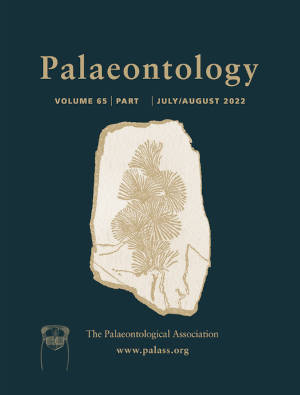Article: Planetary-scale change to the biosphere signalled by global species translocations can be used to identify the Anthropocene
Publication: Palaeontology
Volume:
65
Part:
4
Publication Date:
2022
Article number:
e12618
Author(s):
Mark Williams, Reinhold Leinfelder, Anthony D. Barnosky, Martin J. Head, Francine M. G. McCarthy, Alejandro Cearreta, Stephen Himson, Rachael Holmes, Colin N. Waters, Jan Zalasiewicz, Simon Turner, Mary McGann, Elizabeth A. Hadly, M. Allison Stegner, Paul Michael Pilkington, Jérôme Kaiser, Juan Carlos Berrio, Ian P. Wilkinson, Jens Zinke, and Kristine L. Delong
Abstract
Abstract We examine three distinctive biostratigraphic signatures of humans associated with hunting and gathering, landscape domestication and globalization. All three signatures have significant fossil records of regional importance that can be correlated inter-regionally and help describe the developing pattern of human expansion and appropriation of resources. While none have individual first or last appearances that provide a globally isochronous marker, all three signatures overlap stratigraphically, in that they are part of a continuum of change, with complex regional patterns. Here we show that during the later stages of globalization, late nineteenth to twentieth century records of species translocations can be used to build an interconnected web of palaeontological correlation with decadal or sub-decadal precision that dovetails with other stratigraphic markers for the Anthropocene. This palaeontological web is also a proxy for accelerating species extinction and of a state shift in the biosphere in the twentieth century.
